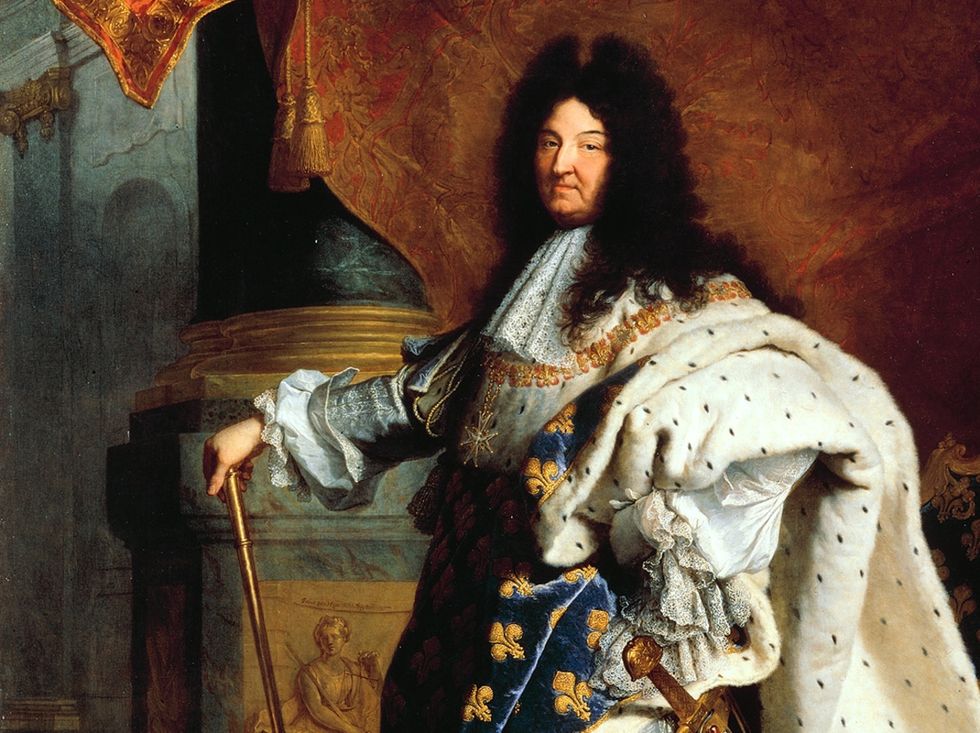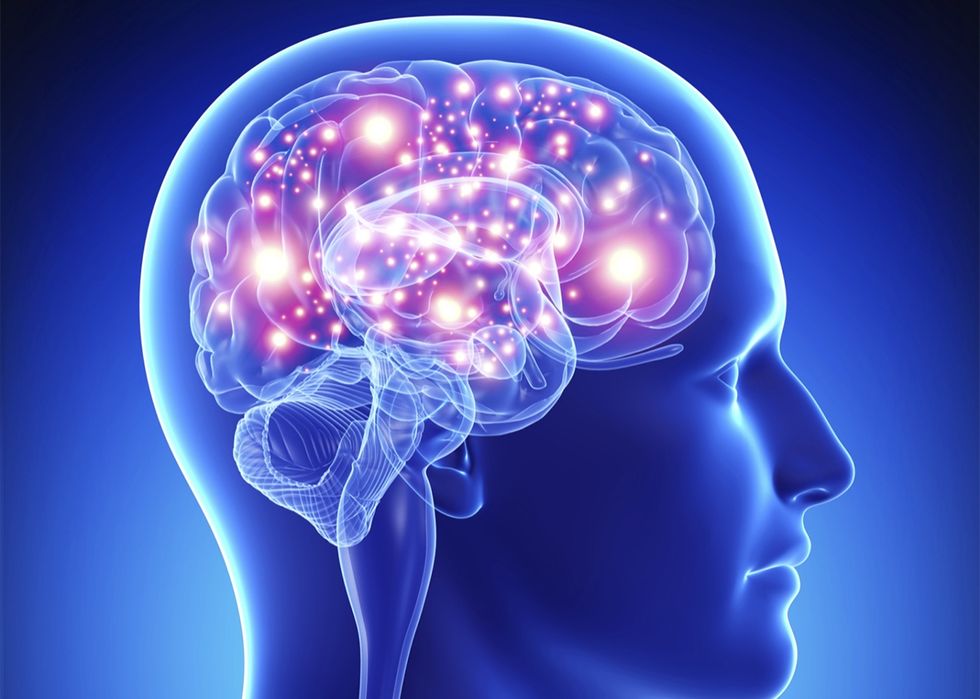The debate of whether power changes a person or only brings out their “true self” has been a psychological phenomenon for decades. In her article, "How Does a Narcissist Think?" Ph.D. Karyl McBride states that the narcissist has “a grandiose sense of self-importance, is preoccupied with fantasies of unlimited success/power, and requires excessive admiration” (McBride, 2017).
McBride explains how absolute power and control can cause a person to become mentally and clinically ill, affecting both them and the people around them.
Megalomania is the primary symptom of those who are corrupted by substantial amounts of power, causing them to become obsessed with exercising their folie de grandeur (extreme madness). However, when we look at power objectively, we must consider the different types of power and how each one can be used to harm or help. Although a person who attains excessive amounts of power is not obliged to becoming corrupt, a person that has pre-existing aggression, lack of empathy towards others, and manipulatively controlling tendencies is prone to becoming corrupted by their power.
Power comes in threes, like most things in life. There’s absolute power, responsible power, and irresponsible power. The megalomaniac would prefer absolute power, in order for them to be able to control everything and everyone around them, free of restrictions and ramifications. This is where the question of morality comes into play in critical ways. Power researcher and professor of management at New York University, Joe Magee, believes absolute power does not corrupt, but “it liberates the true self to emerge” and “once you get into a position of power, then you can be whoever you are” (Magee, 2013). This is especially true when looking at prominent historical leaders over time.
During the Era of Absolutism in 14th and 15th century Europe, leaders ruled their respective nations with complete control of the government, law enforcement, military, and religious organizations. English monarchs such as King Philip, King Charles I, King James II, and Queen Mary II all ruled in their own manner. Some ruled in greater favor of the people, and some in greater favor of themselves, nevertheless, under their own supervision. One of the most influential European rulers of this time period was King Louis XIV of France (r. 1643-1715), known for his extravagant lifestyle and expensive sense of fashion and hygiene. King Louis XIV received his right-to-throne at the age of seven years old after his father, King Louis XIII, passed away. After King Louis’ appointment to the throne, he used the idea of “divine right” to separate himself from ordinary man to a human resemblance of God. This enabled him to govern France in whatever way he wanted to for seventy-two straight years since the people of France feared God’s judgment.
King Louis XIV singlehandedly transformed French society by holding people to social standards of elegance and civility. He expanded his home into a lavish castle, separating himself from the townspeople and the peasants. He began to dress in the finest furs and fabrics, stand strong in high-heeled shoes that made him taller than the average man, and carry swords made of solid gold to illustrate his mighty authority. As the general public began to see their new king, they began to worship and aspire to be like King Louis XIV, while also fearing his sheer image. Despite the fact that he put the country into great national debt and created rigid class structures that complicated social mobility, he believed himself to be one of the greatest kings to ever live, whether it was in denial or in diamonds. Based off of King Louis XIV’s insufficient moral standards, exorbitant conceit and greed, and lack of outside influence, he was able to use his absolute power to create the type of superfluous lifestyle he always dreamt of as a 7-year-old child.
Absolute power is not always as harmless as in King Louis XIV’s situation, meaning he isn’t truly a “bad person”. He is simply a bad leader due to letting his power bring out his true self-centered persona. However, power will bring out the worst in people when it can. In his book, "The Power Paradox: How We Gain and Lose Influence" , Ph.D. of UC Berkeley Dacher Keltner states, “When we appreciate the distinctions between responsible and irresponsible uses of power -- and the importance of practicing the responsible, socially-intelligent form of it -- we take a vital step toward promoting healthy marriages, peaceful playgrounds, and societies built on cooperation and trust” (Keltner, 2007). Responsible and irresponsible power (or responsible-absolute power and irresponsible-absolute power) are two types of power that belong to two different types of people: the morally good and the morally evil.

When I consider morality and leadership, two people usually come to mind: Adolf Hitler and Dr. Martin Luther King, Jr. It is safe to say that both of these leaders had two of the greatest impacts on history at the pinnacles of their career. However, the impacts these two made and the methods in which they took to make an impact are polar opposites.
Adolf Hitler, a young German boy who was power-thirsty from his earliest years, grew up poor and lonely after three of his siblings passed away in infancy. Only one of his five siblings lived after six years old. He grew up under an aggressive and dominating father by the name of Alois Hitler. Alois often took his anger out on his wife and children, which affected the family’s fluidity in traumatic ways. Although his home life was rough, Adolf Hitler was praised and reverenced by his teachers for having good grades and behaving well in school. However, at the age of 16 years old, Hitler decided he would quit school forever. Historians contribute this decision to a number of deaths that happened in Hitler’s life; he lost his siblings and both of his parents by the age of 18. He then began to take his life in a different route when he volunteered for a position in a Bavarian war regiment in 1914, where he quickly earned recognition of Corporal and was granted numerous awards. This is the moment where Hitler’s life would change forever.
He began to fall under the wings of Georg von Schönerer and Mayor Karl Lueger, two influential politicians that inspired Hitler to be a champion of German nationalism and pride. After he fought and lost in World War I, Hitler was jailed for high treason for five years. He began writing his debut book, "Mein Kampf" or "My Struggle", which started the new chapter in his life. In this book, Hitler described how he would one day unify Germany again, and bring the German race to the top of global hierarchy. After the Nazi party read his book and took note of his master plan, they respected him even more, urged his release from prison, and got him back on the front line to lead the Third Reich into another war. This opportunity was all that Hitler needed to have in order to become his true self. From a young boy who grew up lonely, angry at his father, and devoid of maternal love, to an hotheaded soldier with a taste for vengeance against those that defamed the German flag, Hitler’s acquisition of power, rank, and status catalyzed the Holocaust, most of World War II, and future German-American relations.
Believe it or not, Adolf Hitler and Dr. Martin Luther King Jr. had a common goal in mind at the time of their activeness: to unify their people, and to create a sense of pride in their nation. However, Dr. King promoted anti-violent protest, equality and acceptance amongst all races, and national peace, while Hitler stood for the very opposite. Dr. King grew up under two amazing parents, Michael King and Alberta Williams, who instilled good ethics and values in him. Growing up with two positive role models in the home, Dr. King always knew he wanted to make a change in the world for the better some day.
He began to push for Civil Rights in the 1950s, where he peacefully protested and boycotted, joined political social groups of progressivism, and marched for a change. As Dr. King became more involved in politics and societal relationships, he grew more renowned and formidable. Whenever he spoke, people listened. Whenever he acted, people reacted. Despite popular opinion and adversity, Dr. King stood for what was right, and he never felt the need to assert any physical dominance or mental manipulation upon his followers. Dr. King is the epitome of what a powerful person with good morals is, someone who stands for a positive cause and uses their platform for benevolent influence.
In the 19th century, Lord Acton once said, “Absolute power corrupts absolutely,” but I generally disagree with this theory. Absolute power doesn’t corrupt, but it enables a person to be who they truly want to be. As Abraham Lincoln once stated, “Nearly all men can stand adversity, but if you want to test a man’s character, give him power.” When comparing Dr. Martin Luther King Jr. to Adolf Hitler and King Louis XIV, morality is the determining factor of their differences. Dr. King promoted a world where everyone is united and gifted the promise of equality and freedom. He was empathetic, philanthropic, and charitable, all qualities of a successful leader. On the other hand, King Louis XIV and Adolf Hitler both used their riches to display their strength, oppressed the poor and vulnerable, and put both of their countries in great national debt and disillusion.
What is interesting to me is the comparison of these three leaders. Their childhoods were very similar: harmless, innocent, and promising. Yet, their lives after receiving a voice in their respective societies are very different. This leads me to believe megalomania is real, and it causes people to change for the worst. When humans understand the amount of power they possess, they then make the choice between using it for good or bad, which defines their character. As naturally morally corrupt people receive power, a sense of omnipotence and entitlement takes over their brains, while the naturally morally correct experience no egotistical change. In summary, a person that has significant power but no desire to use it based on complacent morality is essentially powerless, whereas a person that has both significant power and a desire to use it based on responsible/irresponsible morality has the capability to change the world.





















